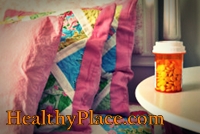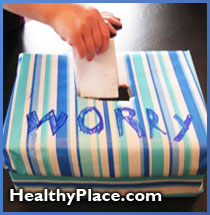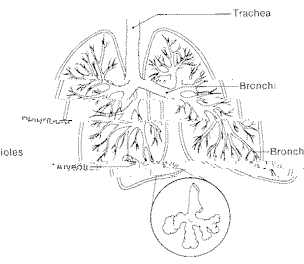People share information on Passionflower, Pedi-Active for treating ADHD symptoms naturally, plus story on Pedi-Active A.D.D. manufacturer admitting to unsubstantiated ADHD claims.
Natural Alternatives for ADHD
Passionflower - Passiflora incarnata
The following is excerpted from the Health Search newspaper published by Wilson Publications, Owensboro, KY 42303
Popular since the Aztec civilization as a sedative, diaphoretic and analgesic, passionflower has numerous chemicals to beneficially influence the brain, nervous system and the circulation. Non-toxic, it is widely used in childhood nervous conditions.
As a sedative, passionflower is a preferred herb for treating insomnia; one wakes rested without a sedated feeling. As an antispasmodic it is helpful in Parkinson's disease, asthma especially with much spasmodic activity, seizures and hysteria.
Pedi-Active
Pedi-Active Nature's Plus website describes this as follows...
"Pedi-Active is a precisely calibrated formula designed for the active child. Each naturally sweetened, delicious chewable tablet supplies a complete profile of the most advanced neuronutrients available, including a diversified combination of phosphatidylserine, DMAE and activated soy phosphatides. Pedi-Active is a state-of-the art nutritional supplement that naturally complements an active child's delicate system. Choose the Pedi-Active tablets or the convenient Pedi-Active Liposomal Spray, and supplement either with the naturally delicious Pedi-Active Bar."
Nature's Plus - Visit their website for more information or to order and if anyone has tried it please let us know so that we can post something here.
Please note that Nature's Plus make the following statement on their web page "These statements have not been evaluated by the Food and Drug Administration. This product is not intended to diagnose, treat, cure, or prevent any disease."
Mary writes...
"I muscle test my son to see what supplements he needs. He does call for Pedi-Active in spurts. He says it helps him concentrate and it does seem to help.
We will continue to use it.
Muscle testing is a form of kineseology that can be life saving. You test each vitamin by holding it close to your body and asking whether you need it or not. Your body will answer the questions you ask. It sounds really weird. But my son and I lived in a toxic house and were VERY ill. I was taught this method of testing vitamins and it pulled me off the death bed. THE most important technique I ever learned.
I live in USA. I think that everyone needs to learn this technique. I wrote down all the supplements that you had in alternative treatments and tested them on my son. Found out that he needs Nutri-kids School Aid, Gotu Kola and NAET.
Fortunately I know how to do NAET, so we will continue using it. So I am adding the Nutri-kids school Aid and Gotu Kola to his daily muscle testing vitamins. I test my own vitamins at least three times a day as I am still dealing with mercury toxicity. I want to thank you for you web page. I am on my way there next to find out where to get the Nutrikids.
Again, I can not tell you how important the muscle testing techniques is. I know several people who use it. There are a few methods of doing it."
Rhonda writes......
"Thanks for the opportunity to speak about Pedi-active. I have a 6 year old PDD-NOS child who has problems regulating his activity in school. Pedi-active is the only product that has given him any results. I have tried at least a dozen different products and have always come back to pedi-active."
Valerie writes......
"I am a strong advocate for pedi-active. Although I don't feel it is the cure all, it has definitely helped by taking the "edge" off things. My son is attention deficit inattentive type-without hyperactivity. I tried so many alternatives, many of which helped, but I could only take them so far (like neurofeedback). I was reluctant to try pediactive because I don't like medication (natural or chemical). I did some research which was difficult because info on this product is hard to come by, but I determined that the product was safe, so I tried it. My son used to have outbursts (screaming, punching walls, slamming doors, ete.). He doesn't have them when he is taking these vitamins. He takes 2 tablets twice a day. He loves them, and he says he feels better when he takes them. They are expensive-so when I run out, sometimes it takes a while before I can get him more. Two weeks is his limit before he falls back into old behaviors and starts with the outbursts. I also noticed that it takes a while for the vitamins to build up in his system and for the outbursts to subside. He was in a behavior management class, but is now mainstreamed. He still has a behavior chart, but does well as long as he's on the vitamins. Like I said, the vitamins alone are not a cure all. He has other supports to help him, but he's on no medication. I am considering increasing his dosage-trying the vitamins 3 times a day-to see if it makes a difference. It will be worth the money. I will let you know.
Valerie"
In addition to the above information you should also be aware of the following...
Wednesday August 16 2000, 5:19 pm Eastern Time FTC Charges Dietary Supplement Co.
By DAVID HO
Associated Press Writer
WASHINGTON (AP) -- The Federal Trade Commission charged a New York company Wednesday with making unsubstantiated claims that its dietary supplement can treat children with attention disorders.
Natural Organics Inc., of Melville, N.Y., advertises that its Pedi-Active A.D.D. supplement can alleviate symptoms of attention deficit hyperactivity disorder and improve the attention span of children who have difficulty focusing on schoolwork, the FTC said in a statement.
"ADHD is a serious condition, and parents who are concerned about it should talk to their children's doctors about appropriate treatment," said Jodie Bernstein, director of the FTC's Bureau of Consumer Protection. She asserted that the company's ads prey on parents seeking alternative treatments.
Physician-prescribed stimulants and behavior therapy are the most common treatment for ADHD, which affects up to 2.5 million school-age children in the United States.
Gerald Kessler, chief executive of Natural Organics, said his company had numerous scientific studies to support its advertising.
"We have asked the FTC to have their experts meet with our experts to determine the validity of studies. They have refused to allow this to happen," Kessler said. "We're going to fight this every step of the way."
The company, which does business as "Nature's Plus," markets and sells a variety of dietary supplements through independent retail stores. Sixty tablets of Pedi-Active A.D.D. sell for $12.56.
This is the FTC's fifth action involving products marketed to treat ADHD. While the commission's complaint begins a legal process seeking to stop future unsupported claims, it doesn't mean any laws have been broken.
Natural Organics stands its ground on FTC challenge
September 01, 2000
NEW YORK (Reuters Health) - A Melville, New York-based marketer of dietary supplements intends to fight Federal Trade Commission charges that the company made unsubstantiated claims about a product offered as an alternative for treating attention deficit hyperactivity disorder (ADHD).
Natural Organics Inc. said that the FTC's allegations involving its Pedia-Active A.D.D. tablets are false and that the company has begun a process of contesting the charges.
"I'm not going to back down. I hate bullies," CEO Gerald Kessler told Reuters Health in a candid interview, during which he promised to return all profits from the sale of the tablets to help children with attention deficit disorder (ADD).
The FTC last month charged Natural Organics and owner Kessler with falsely claiming that the company's Pedia-Active tablets would improve the attention span and scholastic record of children with ADHD and those who have difficulty focusing on school work.
Kessler said that Natural Organics' problems with the FTC began 3-1/2 years ago, when the commission claimed that the company's studies were insufficient. In fact, Kessler said that the company submitted some 200 studies, including 18 double-bind studies, which substantiate its claims for Pedia-Active.
"We're certainly not somebody who goes out and makes claims without verification," he said.
Thus far, Kessler charged, the FTC has failed to produce a single study to support the allegations and has refused to allow its scientists meet with the company's scientists to resolve the issue. "They kept trying to harass us into signing something and we said we're not going to do that," he fumed.
The FTC said that it is seeking to bar Natural Organics from making false claims about treating ADHD and from using the name "A.D.D." or any name that suggests its product can treat or mitigate ADHD.
In a statement issued last month, Jodie Bernstein, director of the FTC's Bureau of Consumer Protection, said that consumers are put in "a rough spot" when they can't trust the claims in the ads, particularly for "parents who are trying to do the best for their kids."
But Kessler, who speaks passionately, about natural alternatives to the prescription hyperactivity drug Ritalin, says he, too, is trying to right by parents. As a child, Kessler also experienced the symptoms commonly labeled as ADD or ADHD, a behavioral disorder estimated to affect some 2.5 million school-aged children in the US.
"I was hyperactive, let's put it that way," Kessler said. "They didn't call it ADD." That is one reason, he explained, that he founded the company 29 years ago.
Kessler spoke about the FTC challenge after being contacted for comment by Reuters Health. He said that the company had not received the commission's complaint until days after the FTC announced the charges to the press and that its communication with the company "has just been token."
Vowing to fight to the finish, Kessler questioned the FTC's motives. "If the agenda isn't to protect Ritalin and Ciba-Geigy and the drug industry, what is it?" he asked.
For Release: July 31, 2001
Natural Organics Settles FTC Charges That They Made Unsubstantiated ADHD Treatment Claims
Natural Organics, Inc., based in Melville, New York, and its president, Gerald Kessler, have agreed to settle Federal Trade Commission charges that they made unsubstantiated claims that their dietary supplement product -- Pedi-Active A.D.D -- would mitigate or effectively treat Attention Deficit/Hyperactivity Disorder (ADHD) or its symptoms. The FTC also had alleged that the respondents, in their advertisements, made claims that Pedi-Active A.D.D. would improve the attention span and scholastic performance of children who have difficulty focusing on school work. The proposed consent agreement to settle the charges would prohibit the respondents from making claims about the ability of Pedi-Active A.D.D. or any other food, drug or dietary supplement to treat not only ADHD in children, but also any childhood disease or mental disorder, unless they possess competent and reliable scientific evidence to support such claims.
ADHD is a behavioral disorder which affects up to 2.5 million school-aged children in the United States. ADHD's symptoms -- inattention and/or impulsiveness and hyperactivity -- are common in nearly all children at various times. However, in children with ADHD, the symptoms are chronic and age inappropriate. The disorder can severely affect a child's school performance, family relationships and social interactions.
In August 2000, the FTC issued an administrative complaint against Natural Organics, which does business as "Nature's Plus." Natural Organics markets Pedi-Active A.D.D., as well as several hundred other dietary supplement products. The company sold Pedi-Active A.D.D. through independent retail stores for approximately $14.00 for 60 tablets. The FTC's complaint alleged that Natural Organics represented through print ads, a brochure, an informational letter and on its Website that Pedi-Active A.D.D. would treat or mitigate ADHD or its symptoms, including inattention and poor scholastic performance, without having a reasonable basis to substantiate those claims.
The proposed consent agreement announced today would prohibit the respondents from claiming that Pedi-Active A.D.D., or any food, drug or dietary supplement, would improve the attention span of children, would improve the scholastic performance of children, or can treat or mitigate ADHD in children, unless they have reliable scientific evidence to substantiate those claims. In addition, the proposed settlement would require the respondents to possess and rely upon competent and reliable scientific evidence before claiming that any food, drug or dietary supplement marketed for children can treat or cure any disease or mental disorder.
The proposed agreement would also prohibit Natural Organics from using "A.D.D." or any other name that represents that Pedi-Active A.D.D. or any substantially similar product marketed to children can treat or mitigate ADHD, unless they have competent and reliable scientific evidence that the product is effective in treating or mitigating ADHD.
The consent agreement would allow the respondents to make representations for drugs or dietary supplements that are specifically permitted by the Food and Drug Administration.
The Commission vote to accept the proposed consent agreement and place it on the public record was 5-0. A summary of the proposed consent agreement will be published in the Federal Register shortly. The agreement will be subject to public comment for 30 days, until August 30, 2001, after which the Commission will decide whether to make it final. Comments should be addressed to the FTC, Office of the Secretary, 600 Pennsylvania Avenue, N.W., Washington, D.C. 20580.
Ed. Note: Please remember, we do not endorse any treatments and strongly advise you to check with your doctor before using, stopping or changing any treatment.
next: Pastoral Support Programme
~ back to adders.org homepage
~ adhd library articles
~ all add/adhd articles

 A person who suffers from generalized anxiety tends to worry about big and little issues and feels uncomfortable physical symptoms throughout most of the day.
A person who suffers from generalized anxiety tends to worry about big and little issues and feels uncomfortable physical symptoms throughout most of the day. Complaints of difficult, labored, or uncomfortable breathing (called dyspnea) can be a signal of a serious emergency or of a mysterious medical puzzle. Seek immediate professional evaluation if this problem has never been diagnosed. Most often a person will describe it as "not being able to catch my breath," or "not getting enough air," even while appearing to breathe normally. Certainly the inability to breathe properly can be alarming, and many persons will immediately react with anxiety, fear, or panic.
Complaints of difficult, labored, or uncomfortable breathing (called dyspnea) can be a signal of a serious emergency or of a mysterious medical puzzle. Seek immediate professional evaluation if this problem has never been diagnosed. Most often a person will describe it as "not being able to catch my breath," or "not getting enough air," even while appearing to breathe normally. Certainly the inability to breathe properly can be alarming, and many persons will immediately react with anxiety, fear, or panic.
 Uncomfortable changes in heart rate are the most frequently reported symptoms of panic attacks. Over 80% of those experiencing panic list a rapid or irregular heart rate as a symptom.
Uncomfortable changes in heart rate are the most frequently reported symptoms of panic attacks. Over 80% of those experiencing panic list a rapid or irregular heart rate as a symptom.